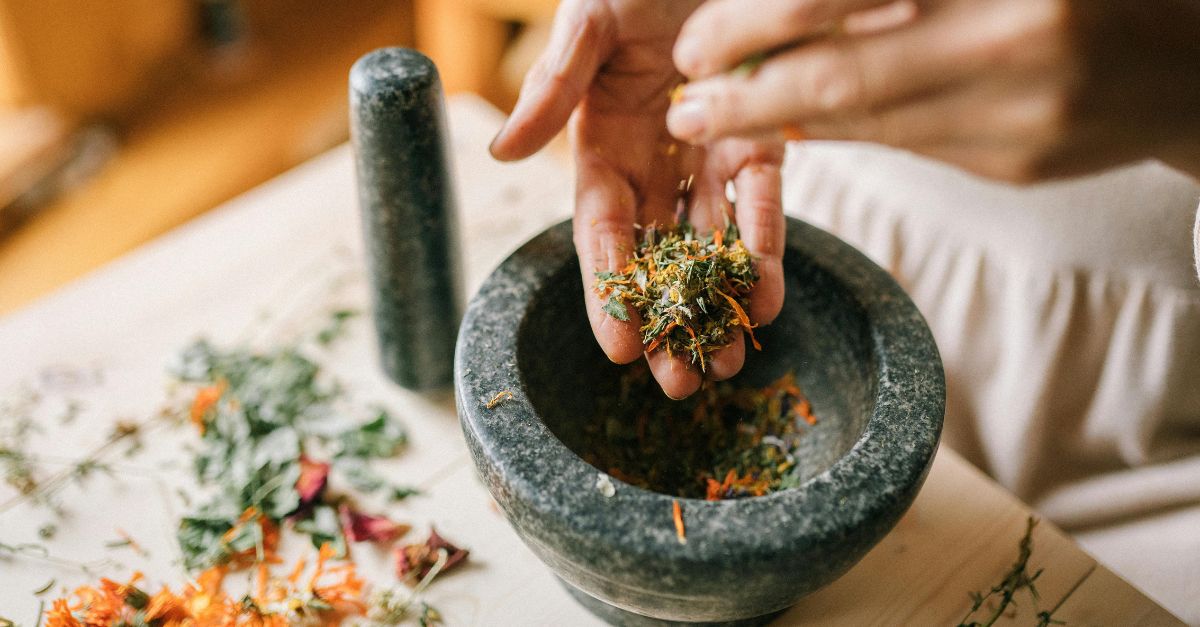Traditional Chinese Medicine has a unique approach to mental health and emotional balance, one that emphasizes the interconnectedness of body, mind, and spirit. In TCM, mental health is seen as an integral part of overall well-being, and emotional balance is considered crucial for maintaining physical and mental harmony.
In TCM, Qi is believed to flow through the body along specific pathways or meridians. When Qi is balanced and flowing freely, the body and mind are in a state of harmony, and emotions should be balanced. However, when Qi becomes stagnant or imbalanced, mental and emotional problems can arise.
Let’s discuss how to achieve that balance and allow Qi to flow freely again by using TCM practices.
Emotional Balance and The Five Elements
TCM’s Five Element theory provides a helpful framework for understanding the interconnectedness of physical and mental health. Each element (Wood, Fire, Earth, Metal, and Water) is associated with specific emotions, organs, and seasons. For example, the Fire element is linked to the heart and small intestine, and it’s associated with emotions such as joy, love, and anxiety. When it’s unbalanced, someone may experience feelings of panic or agitation.
In TCM, emotional balance is achieved through maintaining harmony among the Five Elements. When one element becomes imbalanced, it can affect the entire system. This can lead to mental and emotional disturbances.
Excess Fire energy can lead to anxiety, insomnia, and heart palpitations. Deficient Earth energy can lead to depression, fatigue, and digestive problems. Imbalanced Metal energy can lead to grief, sadness, and respiratory issues. Whenever there’s a feeling of emotional unease, an imbalance in the elements is a likely culprit.
TCM Strategies for Emotional Balance and Mental Health
So how do you get that balance back? In the realm of TCM, there are several viable options. Practitioners can combine different methods depending on what’s best for their client’s unique situation.
Let’s break down four common ways that TCM practitioners will help their patients rebalance their emotions.
Acupuncture
Acupuncture is a powerful tool for achieving emotional balance. Many people use acupuncture as a gateway to other forms of TCM due to its accessibility and heavily researched results. It’s minimally invasive and doesn’t require the use of any chemicals or pills. Studies have shown that acupuncture has been helpful in improving situational anxiety, as well as other mental health struggles.
By inserting thin needles into specific points along the meridians, this ancient and time-tested practice can help calm the mind, reduce stress and anxiety, and promote relaxation. Whether someone is struggling with anxiety and worry, depression and sadness, anger and frustration, or fear and phobias, acupuncture can help restore balance to their emotional landscape.
By stimulating the release of neurotransmitters and hormones, acupuncture can help regulate mood and promote emotional resilience.
Herbal Medicine
Herbal formulas can be incredibly effective in taking the place of or supplementing Western psychiatric medication.
Herbal medicine is a natural way to support emotional balance, and it’s a method that’s been used for over 1,000 years. TCM herbal formulas use a combination of natural ingredients to calm the mind, reduce stress and anxiety, and promote relaxation by rebalancing the body’s elements.
Suan Zao Ren Tang (Zizyphus Combination), for example, can be incredibly effective for alleviating anxiety, as well as any sleep-related issues that result from it. Gan Mai Da Zao Tang (Licorice & Jujube Combination) has been effective for people who experience depression. Anyone who wants to try using herbal formulas for their emotional imbalance should consult with a qualified TCM practitioner who can find the right herbal combination for the specific mental health concern.
Dietary Therapy
Dietary therapy is a crucial aspect of TCM, and can help support emotional balance. By eating foods associated with each element, you can help calm anxiety, soothe emotional upset, reduce symptoms of depression, and promote emotional clarity. In the world of TCM, food is a form of medicine.
From cherries and tomatoes to oats and sweet potatoes, each food has a specific energy and property that can help support emotional balance. By incorporating these foods into your diet, you can nourish your body and mind, and promote emotional harmony.
On that note, it’s also important to avoid foods that can cause blockages and inflammation. Too much sugar, for example, can block the flow of Qi. Conversely, drinking plenty of water can improve the flow of Qi and help ease emotional blockages.
Meditation and Mindfulness
Mindfulness is incredibly important in TCM, and western mental health experts have also adopted it in their own practice. It’s clear that meditation and mindfulness are fantastic for re-balancing the mind and achieving emotional harmony.
Meditation allows you to live “in the moment” and free your mind from the burdens of the outside world. This can be beneficial when it comes to re-balancing emotions and soothing emotional unrest.
Practices such as Qi Gong and Tai Chi are popular amongst practitioners as they allow people to move their focus to their bodies and clear their minds through the power of slow and mindful movement. These gentle exercises improve both physical and emotional balance.
TCM: A Tool for Achieving Emotional Wellness
Traditional Chinese Medicine is a powerful tool for achieving better mental health and emotional balance. By using a combination of TCM methods and practices, one can feel better in body, mind, and spirit without the use of chemicals or invasive procedures. The holistic nature of TCM is ideal for improving mental health.
When choosing herbal formulas, it’s essential to look for the purest and highest-quality options. At KPC, we value quality over all else. Our quality control practices are unmatched, and we aim to deliver the best herbal formulas to our clients. View our product catalog for the best formulas in the industry today.
*Please note: These statements have not been evaluated by the FDA. This article is not intended to suggest specific treatments for patients or that any supplements mentioned prevent or cure diseases or problems. Before taking any herbs, all patients should discuss their options with a licensed practitioner, including any other medications the patient is currently taking, as there may be contraindications between pharmaceuticals and herbs.

